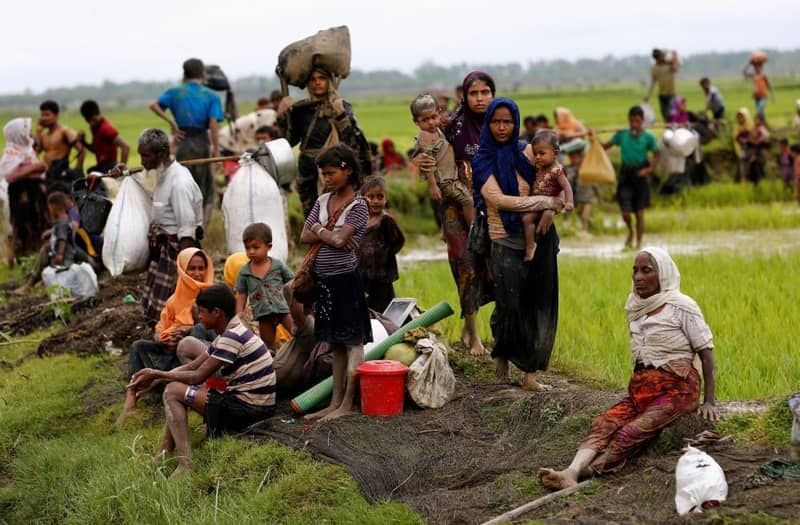- HC stays IDRA move to suspend Sonali Life Board Directors |
- Man dies from heat stroke in Dhaka’s Gulistan |
- UNRWA Situation Report no. 103 on the Gaza Strip & West Bank |
- UNRWA Situation Report no. 103 on the Gaza Strip & West Bank |
- US Human Rights Report 2023: Significant HR issues persist |
LET ROHINGYA LEARN

Rohingyas - the worst persecuted people in the world. Photo. UNB
On the occasion of World Refugee Day, 2021, Burma Task Force, a program of the Human Rights Advocacy NGO Justice for All, has published its new report “Let Them Learn: Confronting the Need for Rohingya Education” which can be downloaded here.
As a persecuted minority in Myanmar (Burma), Rohingya Muslims have long faced drastic limits on access to school in their homeland of Rakhine State. Increasingly disenfranchised, most Rohingya were violently displaced by the brutal Burmese military during genocidal “clearance” operations in August and September 2017. Since then, hundreds of thousands of Rohingya children have been crowded into vast refugee camps in Cox’s Bazar, Bangladesh with little access to education and no access to higher education.
“Rohingya are one of the most persecuted people in the world,” observed Imam Malik Mujahid, Chairman of Justice for All, the UN-accredited NGO. “There has been a systematic attack on education rights. When the world permits the destruction of a people through erasing hopes for the future, it is complicit in genocide.”
“The coronavirus pandemic has exacerbated the poverty and isolation of these displaced people. In this crisis, the Bangladesh Government should completely cease internet shutdowns and restrictions on mobile phones, to allow distance learning to develop,” stated report writer Adem Carroll, United Nations Programs Director for Burma Task Force. “Considering the Burmese military coup of February 1, 2021, the Rohingya in Bangladesh are highly unlikely to be repatriated to their homeland in the foreseeable future, meaning that students should be allowed to study using the curriculum of their choice and to attend high school.”
In addition to keeping the Rohingya people in poverty, the current lack of educational opportunities may lead to alienation, criminal activities, child marriage and trafficking. However, the crisis of Rohingya refugee access to education goes far beyond Bangladesh. The report focuses primarily on Rohingya education in Myanmar, Bangladesh, Malaysia and India.
“I was a Rohingya refugee in Malaysia and Indonesia, among other places,” added Burma Task Force Program Associate Imran Hoque. “This report begins a troubling examination of how many host nations deny basic rights to refugees and destroy hope. But access to education could restore that hope and ensure we Rohingya can be productive citizens and good neighbours. We, refugees, want to be partners in creating a better future together. We do not want to be anyone’s “problem.”
Based on a review of the literature and on interviews with stakeholders, the report finds that many Rohingya volunteer teachers are already helping the next generation but require more resources. Burma Task Force joins other NGOs and calls on all donors and host nations to provide that support without delay.
An NGO with Consultative Status at the United Nations (DGC) Justice for All is a nonprofit organization based in the United States. Since 2012, our program Burma Task Force has advocated for Rohingya rights and accountability in Burma. www.BurmaTaskForce.org

